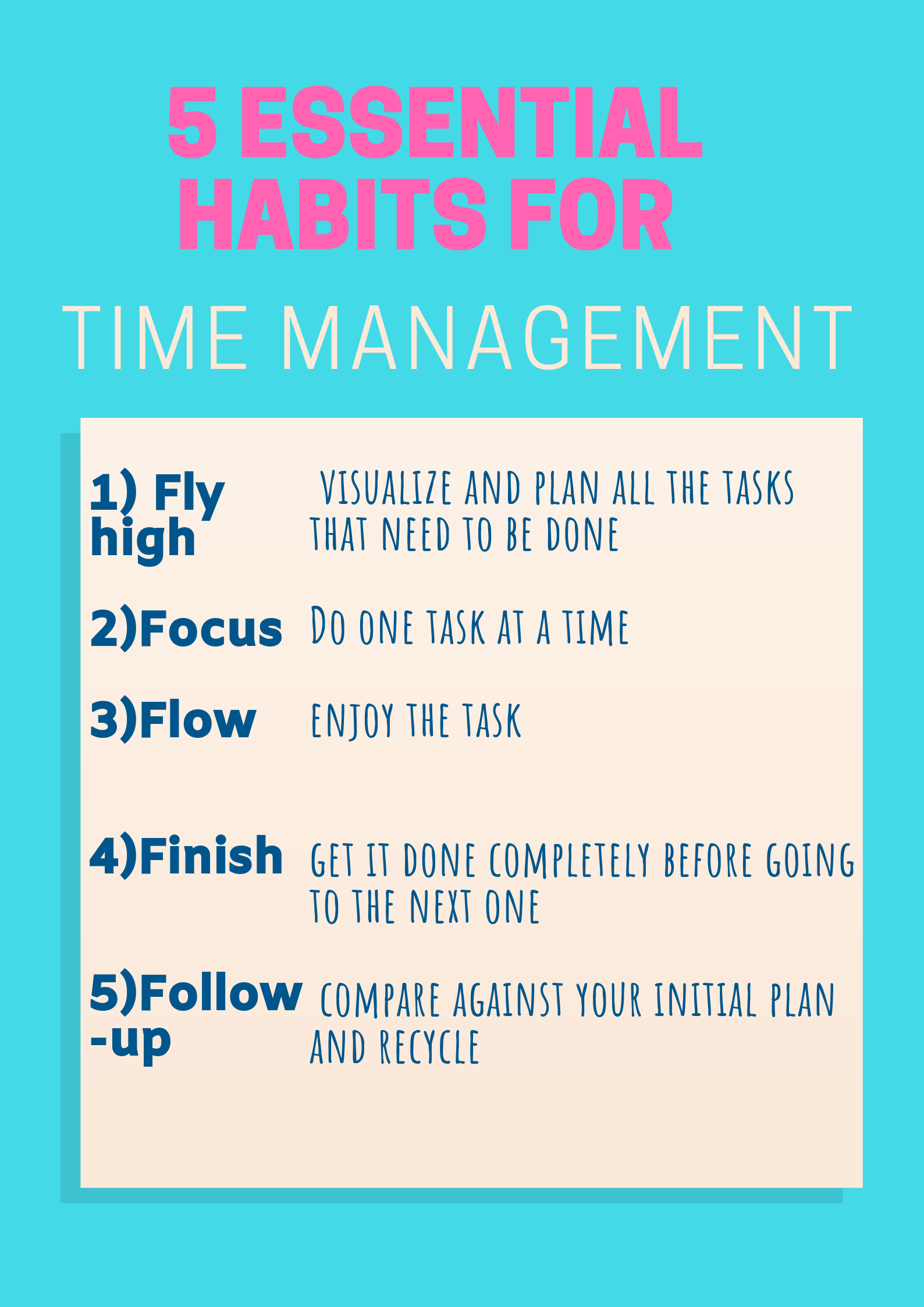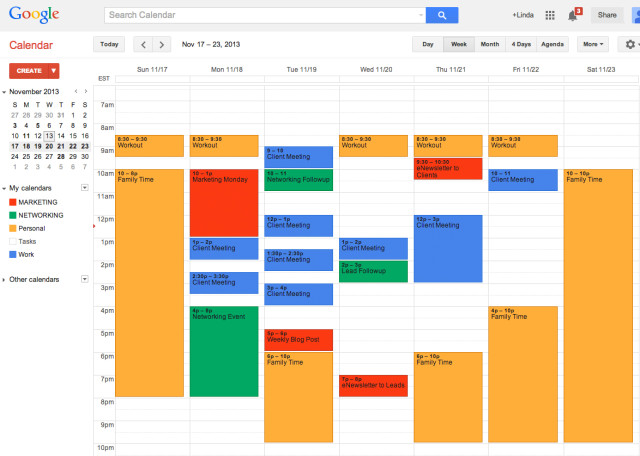
In this new era of continuous communication, it seems that there is never enough time in the day to accomplish what we planned. How can we be better at time management?
Being busy isn’t the same as being effective. Since we all get the same 24 hours, why is it that some people seem to achieve so much more with their time than others? Apparently, the highest achievers manage their time exceptionally well. What is exactly that they do differently? They focus basically on two things: how the prioritize, and how long they spend on activities. They get more done in less time, and whatever they focus on doing, it is something that will help them accomplish results. While you may be doing tons of things at the same time and achieving nothing, they may do less, but they actually finish the tasks.
Good time management requires an important shift in focus from activities to results, so that you can work smarter, not harder.
“Time management” refers to the way that you organize your tasks. Your “system” to prioritize and allocate tasks into your daily schedule. It is more due to ingrained habits that we have. A habit is a routine of behavior that is repeated regularly and tends to occur subconsciously. We all have routines. Some wake up early, others do exercise at the same time every day. The routines could also include how many times you eat and how much or how we work. All the things that we repeat every day are part of our routine.
The good thing about habits is that they help us avoid making conscious decisions all the time. But if those habits are not helpful or smart, we tend to repeat them anyway, and can be a big burden in our life. So, the way we handle our time-management, can make or break our accomplishment rate. How can we improve it then? Follow these 5 F steps for effectiveness:

1) Fly high: visualize all the tasks that need to be done
Having a bird’s-eye, that is a holistic view of the project you have to accomplish, will help you define the main tasks to be done. You have to cultivate the habit of imagining, as specifically as possible, what you expect to see, and what problems may arise, so you consider as many tasks as possible from the very beginning. Let-s start with: What is my mission for next week? Write it down. Then apply the the 80-20 Pareto law: 20% of our priorities account for 80% of our result. Here you can use the Stephen Covey prioritization matrix: which tasks are important? Which ones are urgent? Make sure to define a routine to accomplish these tasks first.

2) Focus: Do one task at a time
Focus on one task at a time and keep your priorities. “Unless something more important – not something more urgent – comes along, we must discipline ourselves to do as we planned” used to say Stephen Covey. Divide projects into smaller parts. Eliminate what you don’t need to accomplish the task (calls and messages, social media, food and especially clutter) and focus all in: think like it is the only thing that needs to be accomplished.
“Unless something more important – not something more urgent – comes along, we must discipline ourselves to do as we planned”
Stephen Covey
3) Flow: enjoy each task as if it was the only one to get done
Great work starts with great feeling. Have you ever lost track of time
while doing something you loved?
Flow is a special state of mind, which moves people to do their best work, no
matter what work they do. The challenge absorbs us so much that we are so
concentrated that we lose track of time. Follow the routine without even
thinking. Tony Robbins sticks to a morning routine designed to boost his energy
and productivity levels for the day. Zuckerberg’s “work uniform”
consists of jeans, sneakers, and a gray T-shirt. A common reason for not
following a routine is because we think about it. Screw it. Let-s do it! Would say
Richard Branson. Just follow the routine. What about any issues that may arise
while we are “performing”? Plan in advance how to deal with inflection points. Then
just Enjoy: flow is a pleasure. Repeat, repeat and repeat the routines until you
do it naturally, becomes a quick win and you get to enjoy it. Flow naturally sets
the stage for self-improvement. Enjoying flow is a continuous motivation to
master new challenges. That’s how some people become the best at what they do.
4) Finish: get it done completely before going to the next one
The whole point of getting things done is knowing what to finish and what to leave undone. Sometimes we tend not to finish tasks: we start emails that we never send, we buy food that we never eat, and we develop products that we never sell. What’s wrong with us all? We may not be sure why we do it, but there are three ways to avoid it in the future. First, time-box or a lot a specific time for each activity, book it in our calendar if possible. Second, accept what you have done: If I have to write an article every Tuesday, It doesn’t matter how good or how bad I feel about the article, all that matters is that I stick to the schedule. And third, get to “done”: avoid “almost finished” activities that fill your calendar without any results.

5) Follow-up: compare against your initial plan and recycle
Peter drucker would say “We can’t manage what we can’t measure”. If on the first step you developed a to/do list or task board with all your pending tasks, Review it. Evaluate results and take action to improve if needed. If not needed, repeat: consistent practice produces mastery, and mastery makes for new habits.
Failing to manage your time is not like a genetic trait, something that you cannot change. It is actually the result of strategy and discipline to commit to the strategy. The self-discipline to keep a routine is like a muscle. It has to be trained. Start today to train your self-discipline and accomplish more with less time!

